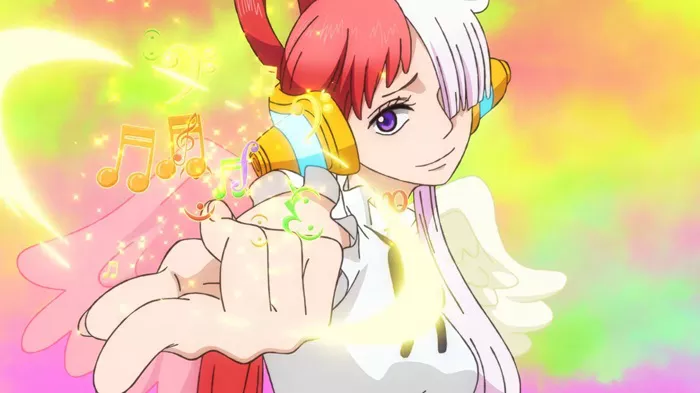Uta, a character in the popular manga and anime series “One Piece” created by Eiichiro Oda, is a member of the Sun Pirates and a fish-man with a unique backstory and role within the narrative. Uta’s journey intertwines with the larger narrative of “One Piece,” and his fate holds significance for both his character arc and the overarching storyline. This article explores what happened to Uta in “One Piece”, delving into his background, contributions, and eventual fate within the series.
Uta: A Fish-Man of the Sun Pirates
Background and Introduction
Uta, also known as Fisher Tiger, was a fish-man and a former slave who rose to prominence as a member of the Sun Pirates, a crew led by Fisher Tiger himself. As a fish-man, Uta possessed unique abilities, including enhanced strength, durability, and the ability to survive underwater. His character was introduced during the Fish-Man Island Arc, where his actions and legacy had a profound impact on the world of “One Piece.”
Role in the Sun Pirates
As a member of the Sun Pirates, Uta played a significant role in the crew’s activities, which primarily involved freeing slaves from human oppression. Led by Fisher Tiger’s ideology of freedom and equality, the Sun Pirates were revered by fish-men and merfolk as champions of their rights and liberties.
The Fish-Man Island Arc: Unraveling Uta’s Past
Flashbacks and Revelations
The Fish-Man Island Arc served as a platform for exploring Uta’s past and the events that shaped his character. Through a series of flashbacks, viewers learned about Uta’s origins as a slave and his subsequent liberation by Fisher Tiger. These revelations provided crucial context for understanding Uta’s motivations and ideals.
Legacy of Fisher Tiger
Fisher Tiger’s legacy loomed large over the Fish-Man Island Arc, influencing the actions of his former crewmates, including Jinbe and Arlong. Uta’s unwavering commitment to Fisher Tiger’s ideals of freedom and equality continued to resonate throughout the arc, highlighting the lasting impact of his leadership and philosophy.
Confrontation with the Marines: Uta’s Last Stand
Encounter with Admiral Akainu
During the events of the Marineford War, Uta found himself face to face with Admiral Akainu, one of the most formidable opponents in the Marines. In a dramatic confrontation, Uta bravely stood his ground against Akainu, refusing to back down in the face of overwhelming adversity. His defiance symbolized the Sun Pirates’ unwavering commitment to their principles, even in the face of seemingly insurmountable odds.
Sacrifice and Consequences
Tragically, Uta’s confrontation with Akainu ultimately led to his demise. In a selfless act of bravery, Uta sacrificed himself to allow his crewmates, particularly Jinbe, to escape from the clutches of the Marines. His sacrifice underscored the depth of his convictions and the lengths to which he was willing to go to protect his friends and comrades.
Aftermath: Uta’s Legacy and Impact
Jinbe’s Guilt and Redemption
Uta’s death had a profound impact on Jinbe, who carried a sense of guilt and responsibility for his former captain’s demise. Jinbe’s journey following Uta’s death was characterized by a quest for redemption and a commitment to carrying on Fisher Tiger’s legacy. His decision to join the Straw Hat Pirates and ally with Monkey D. Luffy reflected his determination to honor Uta’s memory and uphold his ideals.
Inspiration for Future Generations
Uta’s sacrifice and the ideals he embodied continued to inspire future generations of fish-men and merfolk. His legacy served as a beacon of hope for those who sought freedom and equality in a world plagued by discrimination and oppression. Uta’s story resonated with individuals from all walks of life, transcending boundaries of race and species.
Revisiting Uta’s Story in “One Piece”
Flashbacks and Reminiscences
Throughout the “One Piece” series, Uta’s story has been revisited through flashbacks and reminiscences, offering viewers deeper insights into his character and motivations. These moments of reflection serve to remind audiences of Uta’s enduring legacy and the impact he had on the world of “One Piece.”
Continuing Themes of Freedom and Equality
The themes of freedom and equality that Uta embodied remain central to the overarching narrative of “One Piece.” His story serves as a poignant reminder of the ongoing struggle for justice and liberation in a world fraught with inequality and prejudice. Uta’s legacy continues to inspire characters and readers alike to fight for a better future.
Conclusion: Uta’s Enduring Legacy in “One Piece”
Uta, also known as Fisher Tiger, was a fish-man whose story left an indelible mark on the world of “One Piece.” From his humble origins as a slave to his heroic sacrifice in the face of adversity, Uta’s journey embodied themes of freedom, equality, and the pursuit of justice. His legacy continues to inspire characters and readers alike, serving as a reminder of the enduring power of conviction and the impact that individuals can have on the world around them. In the vast ocean of “One Piece,” Uta’s story remains a shining beacon of hope and inspiration for generations to come.

